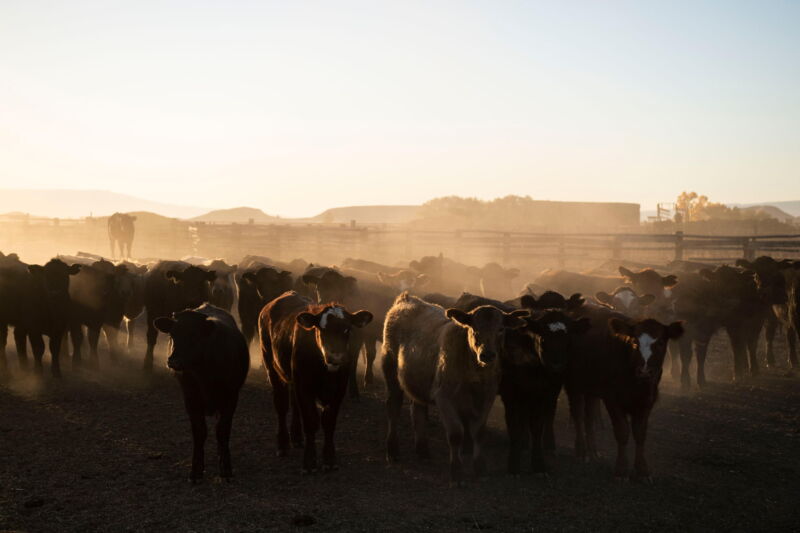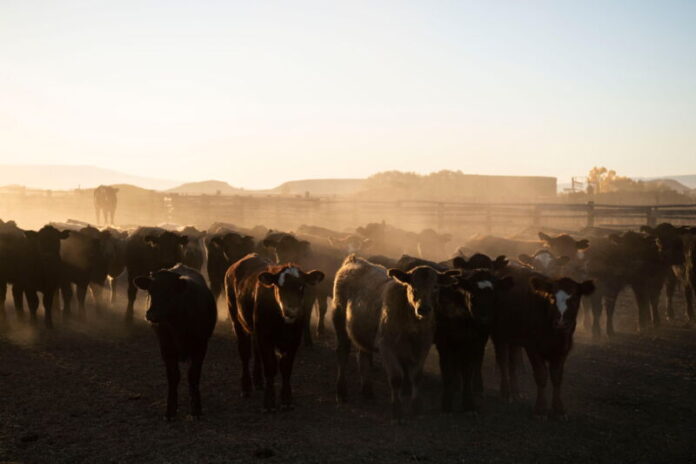
Enlarge / The Environmental Working Group published a new analysis on Wednesday outlining its efforts to push the USDA for more transparency, including asking for specific rationale in allowing brands to label beef as “climate friendly.” (credit: Carolyn Van Houten/Washington Post via Getty)
About five miles south of Broken Bow, in the heart of central Nebraska, thousands of cattle stand in feedlots at Adams Land & Cattle Co., a supplier of beef to the meat giant Tyson Foods.
From the air, the feedlots look dusty brown and packed with cows—not a vision of happy animals grazing on open pastureland, enriching the soil with carbon. But when the animals are slaughtered, processed, and sent onward to consumers, labels on the final product can claim that they were raised in a “climate friendly” way.
In late 2022, Tyson—one of the country’s “big four” meat packers—applied to the US Department of Agriculture (USDA), seeking a “climate friendly” label for its Brazen Beef brand. The production of Brazen Beef, the label claims, achieves a “10 percent greenhouse gas reduction.” Soon after, the USDA approved the label.
Read 48 remaining paragraphs | Comments
Ars Technica - All contentContinue reading/original-link]




